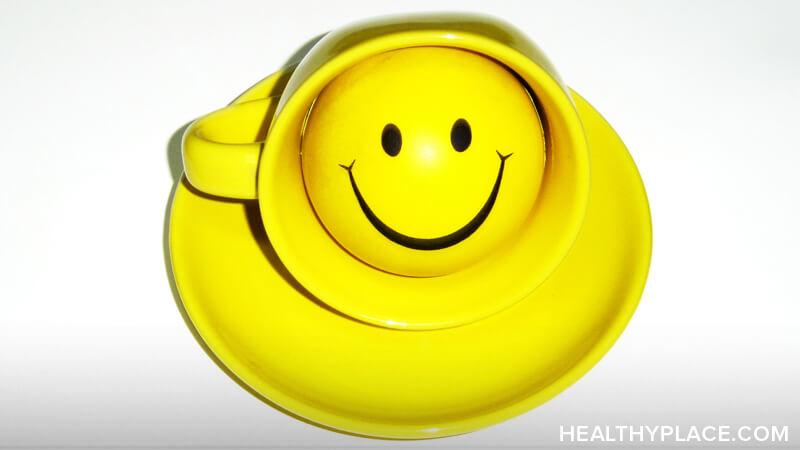How the Coronavirus (COVID-19) Scare Is Helping My Anxiety

The coronavirus disease of 2019 (COVID-19) scare is creating anxiety almost everywhere you look. COVID-19 crept into our world insidiously, and initially, global anxiety blipped but didn't skyrocket. Recently, amidst reports on traditional and social media--some factual and some fear-based, speculative rumor--anxiety and panic have surged.
Imagine what your life in this moment would be like if you could reduce your anxiety right now. While I do take COVID-19 and its effects seriously, I'm not all that worried about it. My current anxiety is low because I'm using the COVID-19 scare as an opportunity to cultivate calm. I'd like to show you how so you can decrease your own anxiety despite the serious nature of this situation.
The COVID-19 Scare Is Real and Can't Be Avoided
To be sure, I'm neither avoiding issues nor denying them. People are worried and irritable, store shelves are empty, schools and many businesses are closed, many people are in isolation, more people are becoming ill, and no one knows what will happen next. Not only is health a concern, but so is our economy. The financial consequences for individuals and general society could be dire.
It is very normal to experience heightened anxiety in reaction to this chaos. Just as you can use this health scare as an opportunity to improve your own health (by increasing handwashing, keeping surfaces clean, being more diligent about avoiding others who are sick and giving yourself a chance to rest and recover when you are ill, drinking more water, and eating better), you can use it as a chance to improve your mental health and anxiety as well.
How I Am Using the COVID-19 Scare as an Anxiety-Improving Opportunity
I'm employing these perspectives, methods, and actions purposefully every day. They're authentic ways of being that aren't new. I also didn't make them up; they've been taught across time and space--many come to us from ancient Asian traditions. They are useful and relevant right now during the COVID-19 scare. They help my anxiety, and they can help you and your own anxiety, too. Coronavirus has afforded me these opportunities:
- Practicing mindfulness--I'm minimizing worries, what-ifs, and worst-case scenarios by noticing these anxious thoughts and repeatedly, and patiently, returning my attention to what I'm doing right now, in this moment.
- Choosing my actions and focus--In each moment, I actively choose what I'm doing and what I'm paying attention to. Rather than sitting in front of social media or the news, I have been active at home, doing positive things and focusing on positive, tangible things in front of me.
- Cultivating calm and patience--Long lines are the rule rather than the exception right now, and when I'm stuck in them, I use the opportunity to breathe deeply and engage in some progressive muscle relaxation, tensing and releasing muscles throughout my body and noticing the sensation.
- Building empathy--I'm not alone in this situation, and many people are facing greater challenges than I am. I don't think I'm in a high-risk health group (I have several autoimmune disorders, but I don't think they put me at risk), and I haven't been exposed to anyone who has the virus. My life is simple; therefore, I haven't had to cancel extravagant events and travel plans. Others, though, are suffering, and I empathize. I can put myself in their shoes, and develop understanding.
- Accepting what is out of my control--This is an attitude, an internal state. It's a choice that drastically reduces anxiety. Worrying won't change anything. Accepting the current changes improves my mental health.
- Letting go--Letting go is an action that results from acceptance. By accepting the way things are right now, I am free to adapt. I am more psychologically flexible and am in a better position to make necessary changes in my life, including being able to get creative with food, supplies, finances, and activities to keep spirits up when school is closed.
- Avoiding shenpa--"Shenpa" is a Buddhist concept that refers to attachment, or getting hooked. For mental health and wellbeing, we want to take measures to avoid getting hooked on stressful events and instead remain separate from what's around us. It's similar to defusion in acceptance and commitment therapy. If I see or hear exaggerated, panic-based reports, I don't have to get hooked. I don't have to respond to fear in kind. Reminding myself of this drastically reduces my anxiety.
- Being nonjudgmental--When I'm open to experiences and avoid judging them, I avoid the trap of labeling each new change as "good" or "bad." Things simply are. Without judgment, I'm better able to choose my thoughts, emotions, and actions. Labeling things negatively is a cause of anxiety, and this situation is a great opportunity to practice non-judgment.
Together, all of this is helping me build uncertainty tolerance. The truth is that we only have this moment. We don't know what will happen next with coronavirus, and as it turns out, that's okay. The above practices, perspectives, and attitudes not only reduce anxiety but increase self-efficacy, the belief in ourselves that we can handle this moment. That means we can handle the next present moment, too, and each present moment as it comes. This knowledge is one of the most powerful anxiety-reducers there is, even during the COVID-19 scare.
APA Reference
Peterson, T.
(2020, March 19). How the Coronavirus (COVID-19) Scare Is Helping My Anxiety, HealthyPlace. Retrieved
on 2026, March 5 from https://www.healthyplace.com/blogs/anxiety-schmanxiety/2020/3/how-the-coronavirus-covid-19-scare-is-helping-my-anxiety